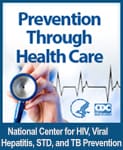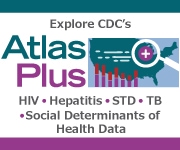MMWR Media Summary
Media Summary
State HCV Incidence and Policies Related to Preventive Services, and Treatment Services for Persons Who Inject Drugs
Hepatitis C virus (HCV) kills more Americans than any other infectious diseases reported to CDC, and from 2010-2015, HCV incidence increased more than 2.9-fold. Injection drug use is the primary risk factor for HCV transmission and the leading cause of new HCV infections in the U.S. The authors of this analysis examined state laws governing access to safe infection equipment and Medicaid policies related to HCV treatment for people who inject drugs (PWID) in all 50 states and DC. This analysis showed that almost one-third (18) states had the least developed laws (i.e. these states had not implemented laws to authorize a syringe exchange program, not taken steps to decriminalize the possession and distribution of syringes, and had not explicitly allowed for the retail sale of syringes without a prescription), and nearly half (24) states were found to require a period of sobriety to receive HCV treatment through Medicaid, which is considered a barrier to treatment access. The 17 states in 2015 with HCV incidence rates higher than the national average had varied laws governing access to comprehensive HCV prevention services. Only three states have laws that support full access to both syringe services programs (SSPs) and hepatitis C-related treatment and preventive services for PWID. Comprehensive SSPs are shown to help stop transmission of HCV infection. These findings can serve as a tool for states to assess what barriers may stand in the way of preventing new HCV infections and decreasing the disease and economic burden of HCV.
Media Contact
National Center for HIV/AIDS, Viral Hepatitis, STD, and TB Prevention
News Media Line – (404) 639-8895
NCHHSTPMediaTeam@cdc.gov
###

